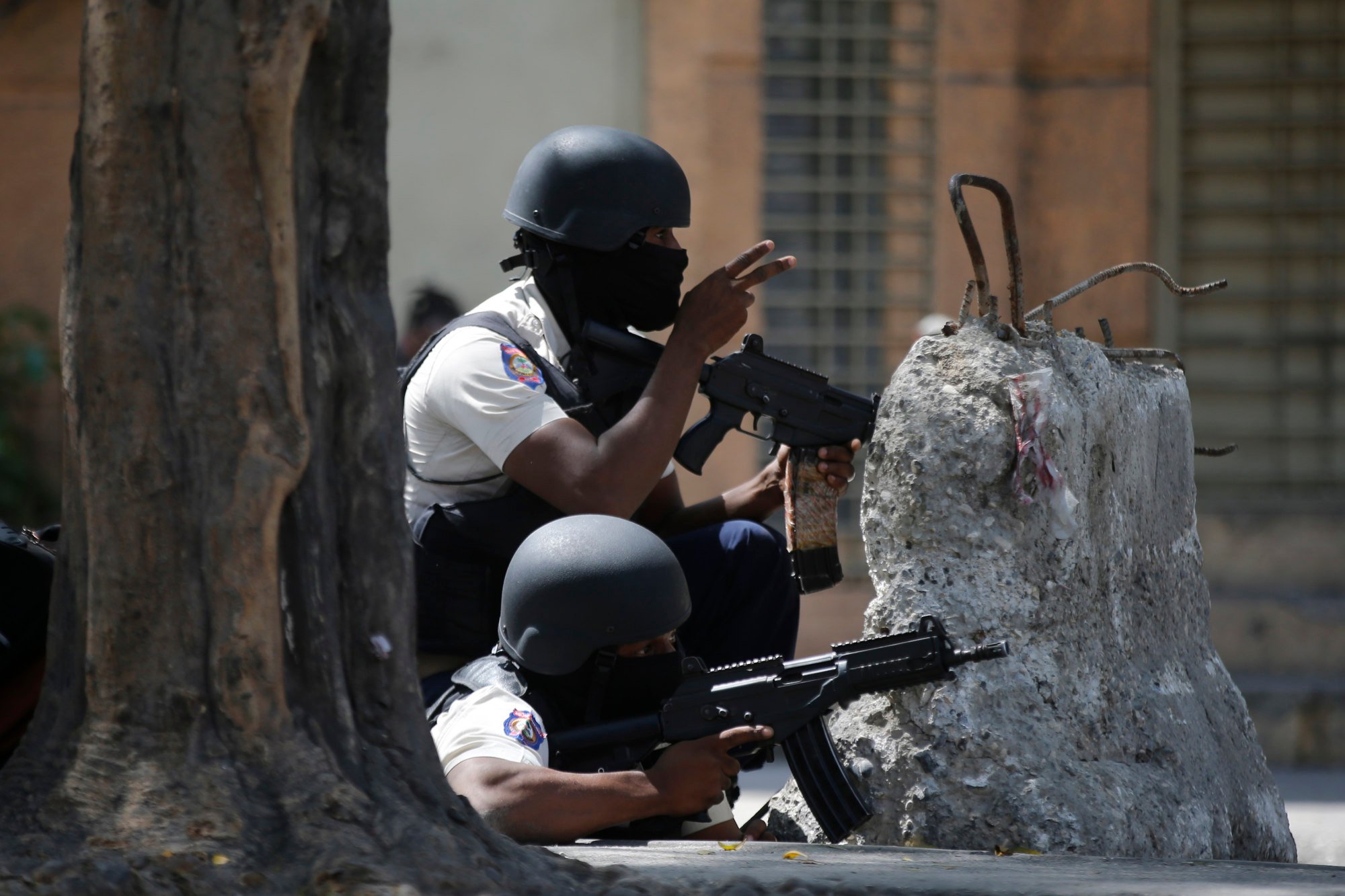UN Security Council approves Haiti force to combat gangs

The United Nations Security Council approved a Kenyan-led mission aiming to bring stability to Haiti, a year after leaders in the violence-ravaged Caribbean nation first pleaded for help.
The Western Hemisphere’s poorest nation has been in free fall, with armed gangs taking over parts of the country and unleashing brutal violence, and the economy and public health system also in tatters.
Haitian Prime Minister Ariel Henry and UN Secretary General Antonio Guterres have been calling since late 2022 for international support to back the fledgling police force, but much of the global community had been jaded by the failure of earlier interventions in Haiti.
Monday’s resolution passed with 13 votes in favour, with China and Russia abstaining. It was hailed by Haitian foreign minister Jean Victor Geneus as bringing a “glimmer of hope for people who have been suffering the consequences of a difficult political, socio-economic, security and humanitarian situation for too long”.
A breakthrough in plans for the force came in July, when Kenya volunteered to lead the force and send 1,000 personnel.
The resolution calls for the deployment of a “multinational security support mission” – not officially a UN force – with a “lead country” coordinating with the Haitian government.
Rooftop snipers, people burned alive: Haiti violence is growing worse
Rooftop snipers, people burned alive: Haiti violence is growing worse
The mission is initially approved for one year, with a review after nine months.
The force aims to provide “operational support to the Haitian National Police, including building its capacity through the planning and conduct of joint security support operations,” the resolution says.
The mission will also aim to create conditions to hold elections, which have not taken place in Haiti since 2016.
Guterres in a recent report said that the security situation in Haiti has only grown worse, with the gang members both more numerous and better armed than the police.
Nearly 2,800 homicides were recorded in Haiti between October 2022 and June 2023, with 80 minors among the dead, the UN report said.
The United States has been advocating a multinational force. On Monday, Secretary of State Antony Blinken said his department would continue working with Congress to provide US$100 million in foreign assistance, and that the Pentagon is prepared to provide up to US$100 million in enabling support.

But President Joe Biden has made clear he will not put American troops in harm’s way.
On Monday, the White House voiced its “gratitude” to Kenya for taking on leadership of the force, and to nations such as Jamaica, the Bahamas and Antigua for adding manpower.
“It is now crucial that we focus on making progress in mobilising the international support necessary to deploy this mission,” US National Security Adviser Jake Sullivan said in a statement.
For the resolution to pass, China had to choose not to apply its veto. Haiti is one of a dwindling number of nations that recognises Taiwan, which Beijing claims and has been seeking to isolate on the international stage.
China, in the run-up to the Security Council meeting, voiced doubts and pointed a finger at the United States, highlighting the role of weapons from Florida in aggravating the violence.
Grisly scenes in Haiti as mob burns suspected gang members to death
Grisly scenes in Haiti as mob burns suspected gang members to death
Under pressure from Beijing, the resolution expands an embargo on light weapons and ammunition. The embargo previously only applied to specific individuals.
China’s UN ambassador, Zhang Jun, said he hopes countries leading the mission will hold in-depth consultations with Haitian officials on the deployment of the security force and explained his opposition to the resolution.
“Without a legitimate, effective, and responsible government in place, any external support can hardly have any lasting effects,” he said, adding that a consensus for a transition is urgently needed as well as a “feasible and credible” timetable. “Regrettably, the resolution just adopted fails to send the strongest signal in that regard.”
The resolution does not specify the size of the mission, although discussions have revolved around a force of about 2,000 personnel.
The resolution also calls for the support mission to “adopt appropriate waste water management”.
A UN peacekeeping force in Haiti that lasted from 2004 to 2017 introduced cholera to the country, setting off an epidemic that killed more than 10,000 people.
The experience fuelled even greater pessimism in Haiti on interventions and contributed to resistance against another force under the UN flag.
Additional reporting by Associated Press





